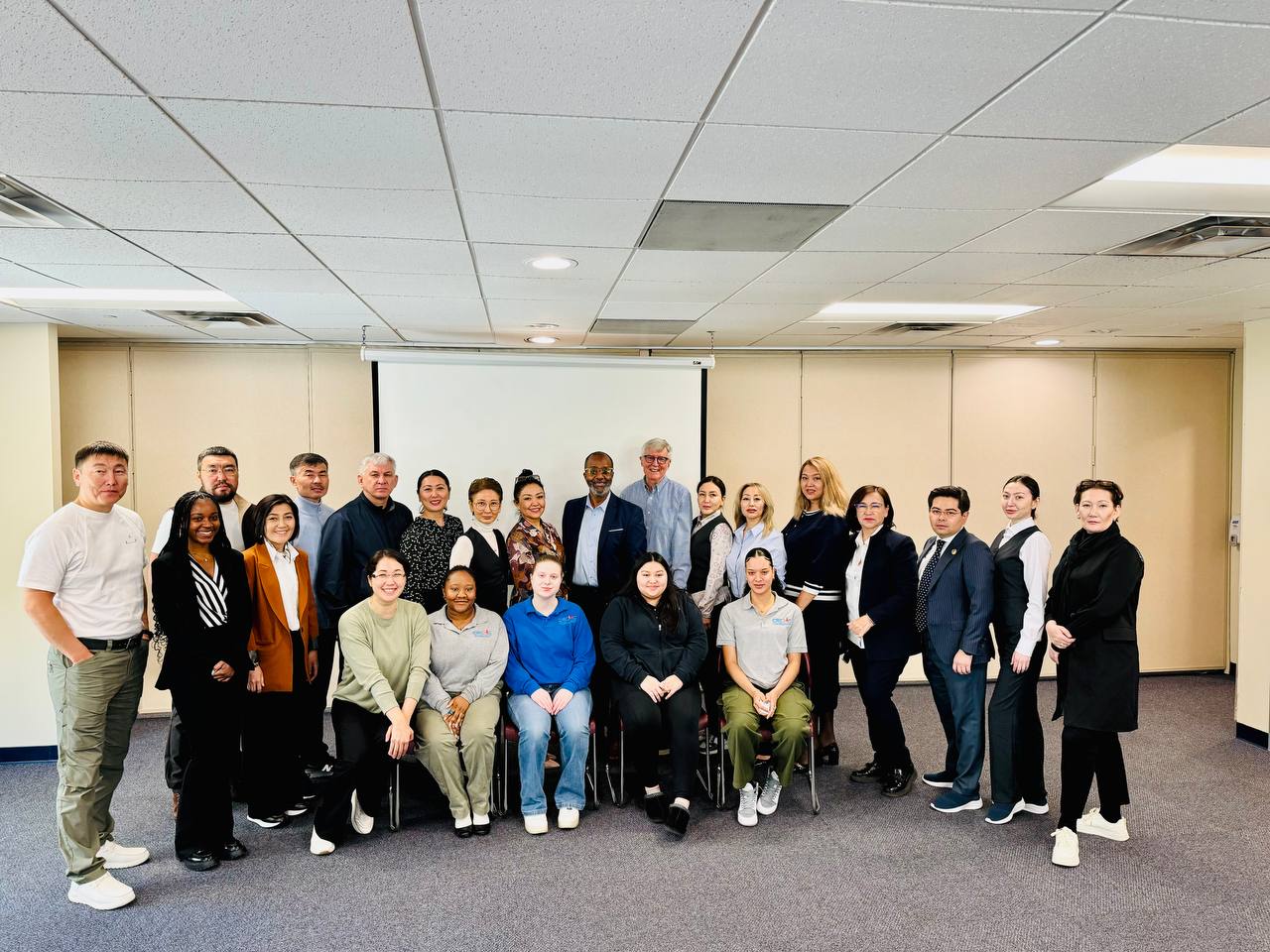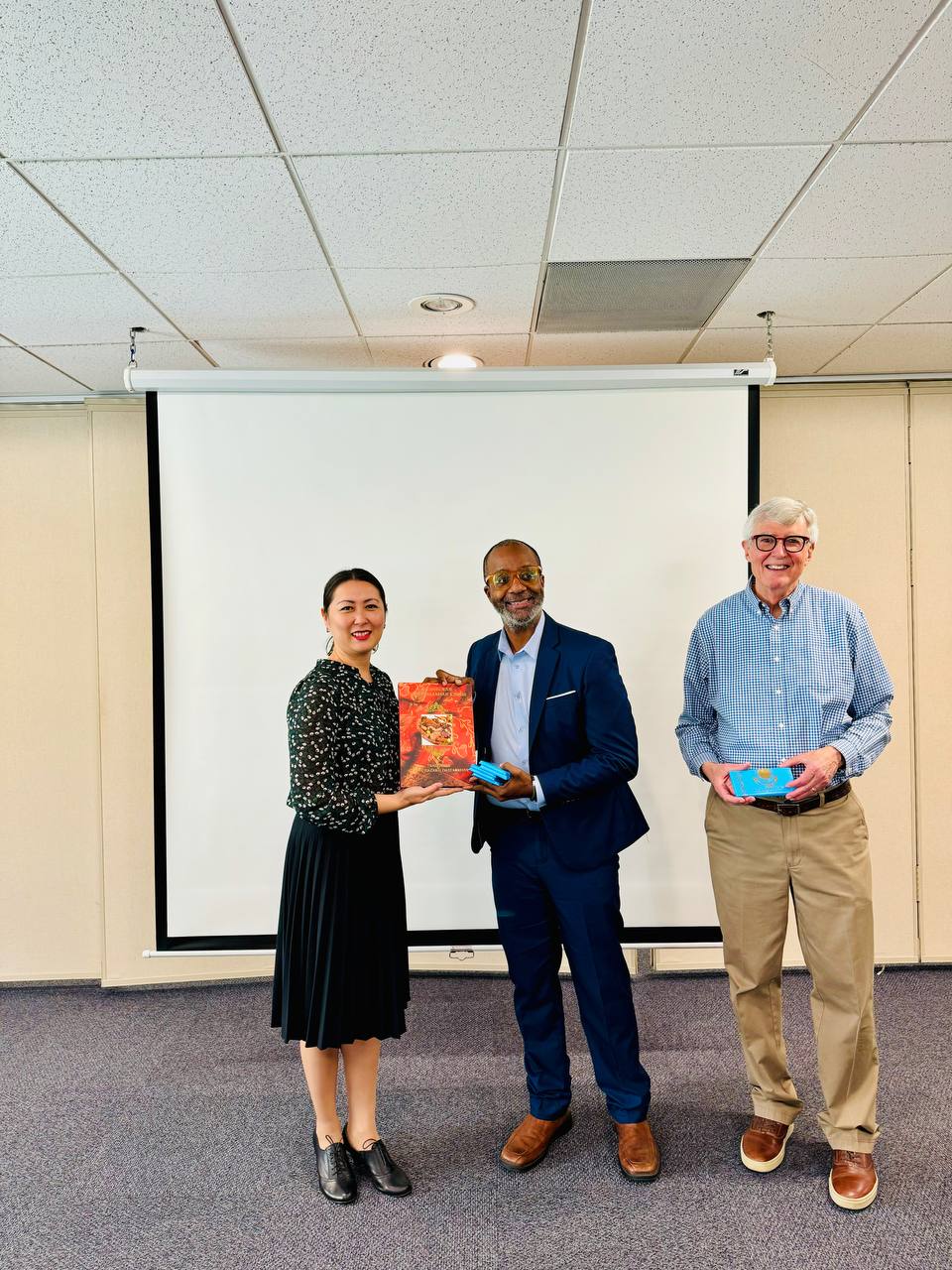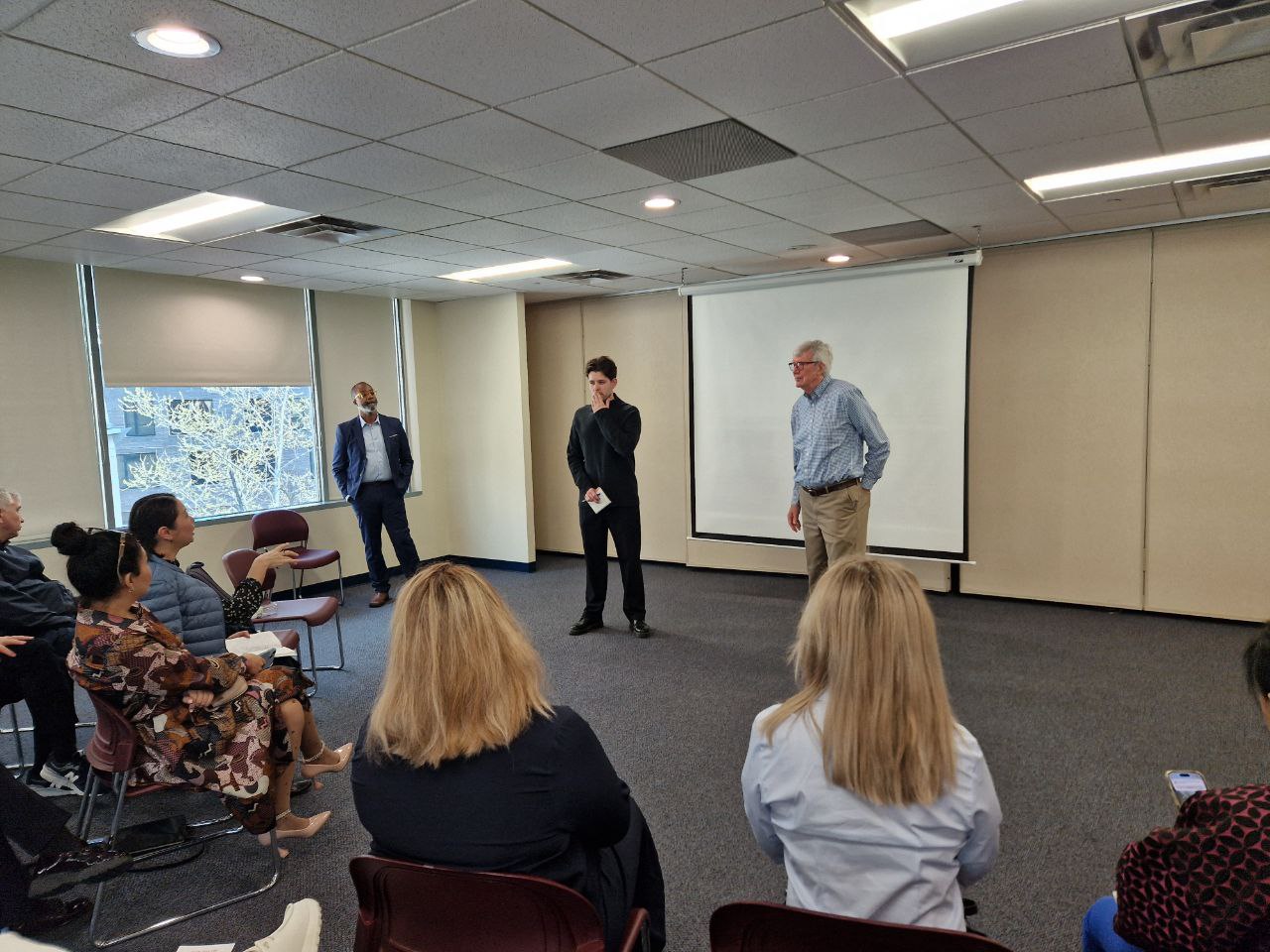From April 6 to 14, 2024, mediators from the International Peace Center (IPC) completed an international internship in the United States (New York City and Washington, D.C.). As part of the internship, the mediators paid a business visit to the Mediation Center in Montgomery. Aida Zamanbekova, the IPC coordinator and mediator who participated in the internship, shared her impressions of the Center:
"Each mediation center welcomed us warmly, positively, and with a great desire to share experiences and knowledge. According to the executive director of the Center, this Mediation Center in Montgomery is the largest in the state of Maryland, and mediation here is more developed than anywhere else in the United States. The Center collaborates with 45 schools. Six people work in the office, and the Center has over 100 volunteers. They undergo training in a basic course and then specialized courses. The basic mediation course lasts 40 hours. The Center mainly handles:
- Small business conflicts
- Neighborhood disputes
- School disputes (bullying, arguments, fights, harassment, and others)
- Disputes with parents, inheritance disputes
- Determination of child residence, etc.
The Center works with courts, which refer mediators to disputes involving amounts up to $10,000. Mediation training is free for mediators. If a party refuses mediation, the court may impose restrictive measures on the party. Mediators conduct facilitation sessions, work with large groups, and communities. For example, disputes arising from the construction of a cafe or a multi-story building, and disputes involving children with special needs.
- Interaction Methods:
- Active social media presence
- Visits to shopping centers, distributing brochures
- Partnerships with government agencies and non-profit organizations
Mediators at the Center conduct up to 20,000 mediations annually. The Center does not handle family divorces, alimony, property division, or commercial disputes. Such cases are referred to private mediators. The Center only resolves disputes related to child-rearing. It is funded by the state and other sources. Two mediators serve three schools per day. Mediation works alongside school psychologists, helping to maintain a calm environment and keep academic performance levels steady.
- Effectiveness:
For school disputes, the effectiveness of mediations is 93%, with 85% of these being voluntarily complied with and maintained for three weeks. The remaining percentage are offered coaching courses with their parents. Mediators work separately with children and parents.
Interpreters are frequently used in mediation. The most challenging mediations are multicultural. Efforts are made to have mediators who speak different languages. The most popular languages are Spanish, French, Chinese, and Ethiopian. They do not have judicial conciliators; retired judges volunteer as mediators. School mediators undergo:
- 40 hours of basic course training
- 24 hours of coaching
- 8 hours of specialization
- 2 practical cases.






